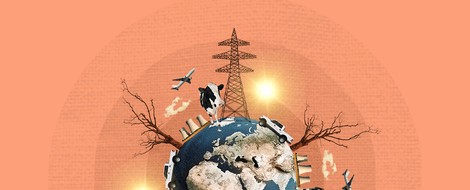Your podcast discovery platform
Curious minds select the most fascinating podcasts from around the world. Discover hand-piqd audio recommendations on your favorite topics.

piqer for: Climate and Environment Global finds
Andrea is a writer and researcher based out of Chicago. Andrea has a Bachelor's degree in environmental science from The Ohio State University and a Master's in Environmental Planning and Management at National Taiwan University, where she specialized in climate adaptation and urbanization. She writes for TaiwaneseAmerican.org, and sends out a biweekly newsletter which includes articles on politics, environment, identity, and intersections of race, class, and gender (http://eepurl.com/bPv-F5).
Let It Go: The Arctic Will Never Be Frozen Again
It seems that the Arctic that we knew will never be as it was again. According to a new report by the US National Oceanic and Atmospheric Administration, "Arctic shows no sign of returning to reliably frozen region of recent past decades". For both us and our fellow Earthbound creatures, this does not bode well. "Until roughly a decade or so ago, the region was holding up relatively well, despite warming at roughly twice the rate of the planet as a whole. But in recent years, it’s undergone an abrupt change, which now defines it." Weather and water patterns are going to change very perceptibly, and will affect tourism, fisheries, and coastlines. Not only will things change, but the pace at which they change will increase. There is, according to scientists, no more "normal".
Among the changes, there are a few that are particularly concerning as they accelerate feedback loops that will increase the impacts more and more. One is the melting of permafrost, which could release large amounts of carbon into the atmosphere, adding to the more traditionally anthropogenic emissions from things like transportation or manufacturing. Another is the decreased albedo, or reflective white surface on the face of the Earth, from melting ice. This would increase the dark blue ocean surface, increasing the amount of energy absorbed, further warming the ocean. All this involves "a lengthening of the growing season, a greening of the tundra, a surge in wildfires, and a boom in plankton growth. All that adds up to a wide-ranging disruption to patterns that Arctic natives have relied on for millennia".
This is a vastly concerning development, but one that many have been anticipating for many years already. "This is a terrifying transition, and one worth mourning. But it’s also a reminder that our path as individuals and as a society is not fixed. If the Arctic can change this quickly, then so must we."
